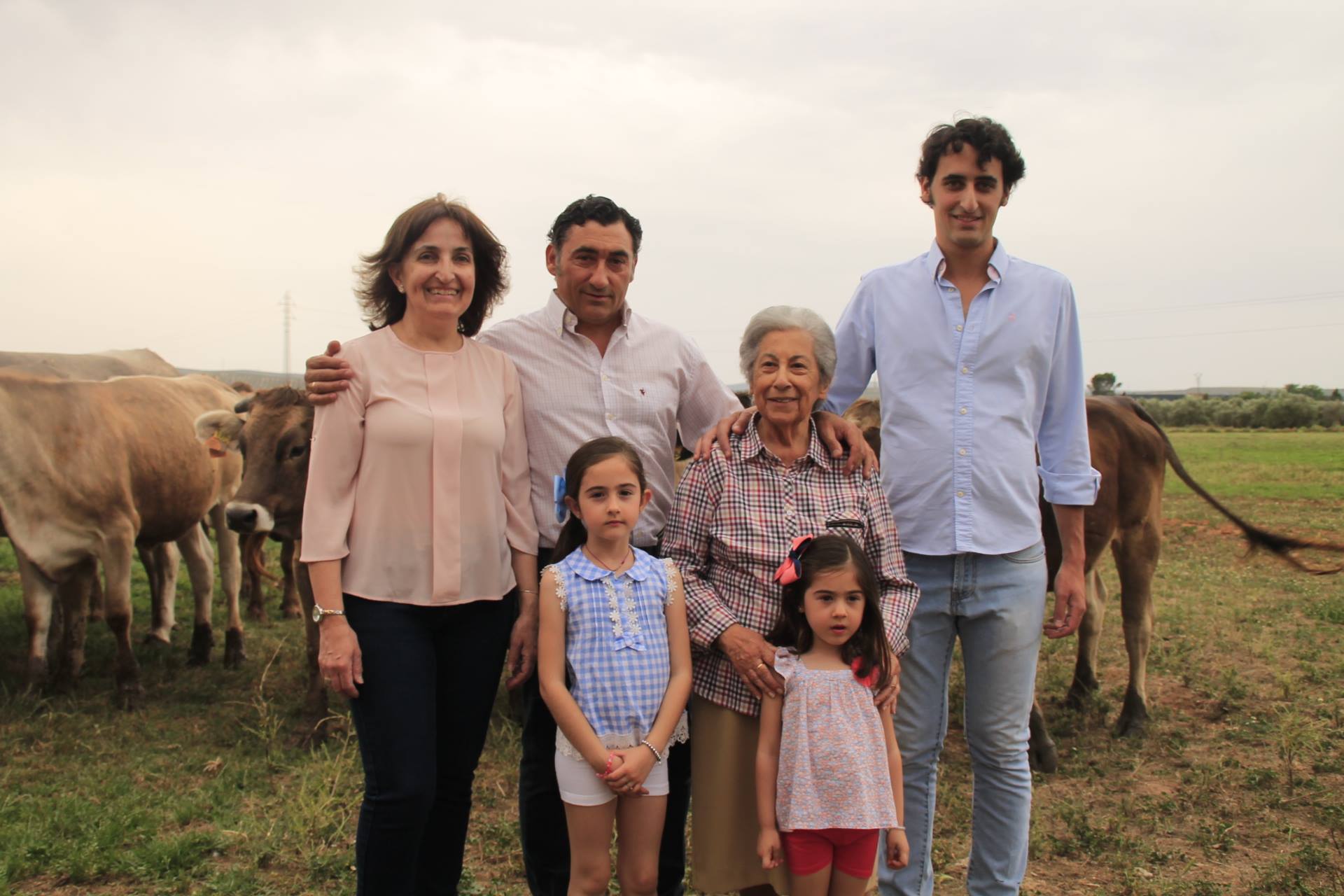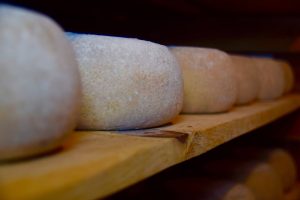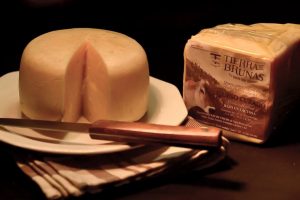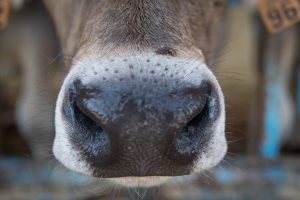Case study 05-ES
Mario Moraga Moraga
Introduction
Tierra de Brunas is an example of the conversion of a livestock company into a cheese and marketing company, oriented from the beginning towards innovation and adaptation to the consumer habits of the future. The choice of the Bruna Alpine breed allowed them to gain in efficiency, adaptation to the environment and orientation towards quality, highly digestible and healthy natural products, reducing the chances of intolerance thanks to the use of an A2A2 milk and obtaining lactose-free dairy products by natural procedures without losing quality and without adding additives to their milk.
Tierra de Brunas is an example of rational management of a business, in which investment in R&D and marketing has been prioritized over large investments in facilities and machinery, a fact that reduces the risks derived from assuming excessive debt positions, in a very competitive sector in which no one can guarantee success.
Links on web

Farm/Enterprise description
The farm belongs to the Moraga brothers’ company and has 22 hectares of semi-intensive breeding of Bruna Apina cows. To this end, they have 5 hectares of facilities and the rest of the pasture to feed the calves and the cows during the period of no milk production. The farm produces 10,000 litres of milk per day, to be sold to the dairy industry. Tierra de Brunas is a personal project of Mario, for which they derive part of the milk production to produce natural cheeses without lactose, cream cheese and yogurt.
Size wise, it is the first or second farm in Europe of Bruna Apina cows. Until 2016 they produced milk from Friesian cows, but the great competition in the sector made them restructure the farm looking for another breed that would adapt to the climatic conditions of the region and offer a type of milk that would adapt to the present and future demand of its potential market. To this end, they designed a natural product without lactose and with a protein phenotype of betacasein A2A2.
Their products are the result of 2 years of research, looking for a natural, new and different product of high quality and high added value. For this reason, they decided to invest in R&D, branding and marketing, instead of investing in cheese making facilities. To do this, they subcontracted these facilities to external cheese makers, where Tierra de Brunas control the formulation and processes for obtaining the cheeses designed after the entire research process. For marketing purposes, they maintain 60% through online and direct sales and 40% through distributors throughout Spain.
In order to begin these activities, several questions must be asked: Are we ready to make the leap to transformation and commercialization? Are we ready for the level of demand and commitment that these productive changes require? If the activity is to generate opportunities for our family, are they willing to get involved and commit to that level of demand? Do they know the risks they are taking? Do they have their own resources to finance the project? Or are you going to assume the uncertainty and put your current milk production at risk?
That is why we have to invest carefully since we invest what we don’t have. If we fail, we will have to pay with the future production of our present cattle. That is why I recommend to start by transforming in other people’s facilities, where you pay the production costs, without investing in facilities. Invest in market research, in brand development, in defining an idea and reaching the desired product, and in developing marketing channels. Always maintaining a level of debt appropriate to your economic capacity. You have to know how far to go in a sector where nobody can guarantee your success.


Multifunctional farming activities related to dairy processing / Innovation related to products and/or processing
Tierra de Brunas was born in 2016, when they chose the Bruna Alpina breed, considering its quality compared to the Friesians. From there, the company passed from selling exclusively to industry to controlling the processing by themselves and selling through their own channels with their brand.
The management of the farm since 2016 is led by an innovative spirit, firstly the selection of a new breed to replace the Friesians. They studied for a long time which breeds could best adapt to the climatic conditions of the Guadalquivir valley, with temperatures of up to 50 degrees in the summer, so as to reduce the adverse effects of these conditions on their herd of cows. These temperatures mean greater stress for the cows, a loss of appetite and increased water consumption, which affects the quantity and quality of the milk obtained, as well as greater difficulty to be in estrus, an increase in diseases due to respiratory problems, and higher mortality. The Bruna Alpina cow, to the surprise of the French associations that manage this breed, is able to adapt very easily to these climatic conditions, given its greater varietal purity and being a cow suitable for both meat and milk production, which gives it more rusticity, robustness and resistance to these conditions.
Despite having a lower capacity of milk production per cow/day, the Brunas have a higher rate of transformation of milk into cheese (Friesians need 10lt for 1kg of cheese, and the Bruna only 7lt). This is due to the higher content of Capacaseina BB in the Bruna’s milk, which makes it more profitable from a processing point of view.
In addition, the Bruna Alpine are more prolific and fertile, which makes it easier to get pregnant, fewer attempts at insemination, lower costs, savings in cycle time, and a greater number of births in the life of each cow, which facilitates rearing and increases the productive time of each cow. In addition to improving management, by being a docile and calm cow.
From their previous market research to know the present and future consumption habits, they identified an unmet demand for natural, with high organoleptic quality and healthy dairy products, as close as possible to human milk. Within cow’s milk there are more than 40 proteins, but betacasein is one of the most abundant and which generates more intolerance. However, there are variants of betacasein such as A2A2 that generate less intolerance, being easier to digest than A1A2 and A1A1 types. The Bruna allow an easier selection of animals with the A2A2 certified genotype. Currently, 70% of Mario’s cattle is A2A2, including his three studs. This ensures that demand for products to be consumed within 10-15 years is met.
From their studies, they identified that 20% of consumers were lactose intolerant in Spain, which has led many to stop consuming cheese or to consume low quality cheeses made from whey. There are other cheeses on the market that are lactose free, but which are added with lactase. This can have negative effects for people who are not intolerant, as it reduces their ability to produce lactase themselves, creating potential for intolerance in the future. That is why it was fundamental for Mario to look for natural products without lactose, without additives, and with high organoleptic quality. That is why they developed a protocol after 2 years of research, in which by playing with milk temperatures they achieved the separation of milk molecules and 100% of lactose, without affecting the quality of the milk. Although they only use milk, salt, rennet and ferments, the result comes from investing a lot of money, doing a lot of tests, a lot of laboratory analysis and spending a lot of milk, until they find the formula and the process they were looking for.
For them, the first thing was to create a brand and have it on the market before making the cheese, with their corporate image, logos, labels, website, registrations, certifications and authorizations. This took a year with a lot of work, in parallel with all their research work.
General considerations
Everything has been difficult for them, from the decision to renew the breed with all its uncertainties and the opposition of their social environment. Even having to develop a new concept of product that does not exist in the market, which is extremely complex because there is no reference. That is why the work process has been based on trial and error on many occasions, with the greatest economic cost, time and effort that this entails.
The whole process has arisen from business necessity, but the result is totally innovative. The problem is that the bureaucratic aspects of certifications and authorizations made the process even more complex, especially taking into account that the company is a family business, in which everything had to be managed directly by Mario, who has found it difficult to communicate and inform about aspects such as the effects of betacasein or the production of natural products without lactose.
From a marketing point of view, it has been complex to make room for a new product, which is often well received by distributors but not by salespeople who prefer to sell products already on the market rather than make an effort to sell something new. This is why it is important to train and inform this sales force, providing permanent commercial support and offering incentives, which is another additional effort. Direct and online sales have worked very well, but in order to extend the commercial network beyond the regional level, it is necessary to go to already established commercial networks, over which there is less control.
Going from producing milk to transforming and selling means going from an activity that is already very demanding to developing and managing three different businesses, which is why Mario decided not to invest in facilities for transformation and to focus his efforts more on research to obtain a product that has an outlet and on marketing. Putting the responsibility of the transformation in trusted cheese makers, with whom Mario works controlling the formulas and processes to obtain a high-quality product. This has required continuous learning for all those who have worked on the project, as what they were doing was completely new.


Training/Competences (Skills, Knowledge, Attitudes) especially relevant for the process
It is clear that everything arises from an idea, an idea that must be very well defined and well founded, each one must consider whether one is capable of carrying it out. There are very good farmers who have a dream, but not all of them are capable of transforming and much less of selling, especially on an industrial level and with large volumes.
This market is very competitive and aggressive, if you are not able to get a differential product out, defend it in the market and get it to the consumer, it will be more complicated to make a place for you in the dairy universe.
From the point of view of training, the breeder has to be very up to date in fertility, nutrition, pharmacology, diseases, management, genetics, etc. But it is also necessary to know the market and to know the consumption habits of the future, for the next 5 years. You have to know about social networks and trends. You have to be very versatile and know about almost everything.
Mario gives priority to skills rather than degrees, and if you are not going to make a differential product, he recommends that you take advice from those who know, to shorten time frames and reduce economic investment and personal effort.
Photo gallery














